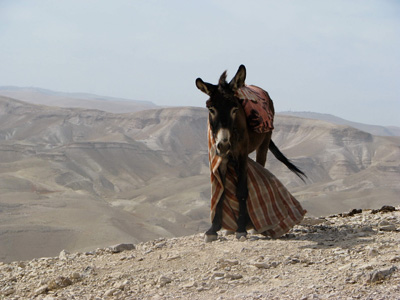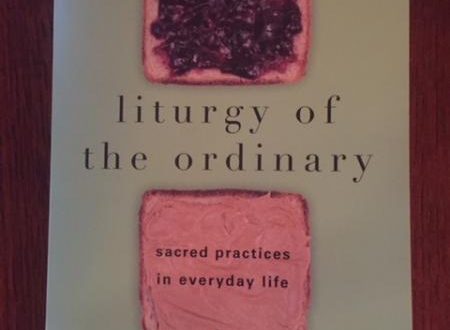
Will Help Come?
I stood shivering at the tram station in the heart of my new city, snowflakes falling faster and faster. If I missed the last tram for the night, I would face a ten mile walk home in a blizzard. The street signs read a language I didn't yet recognize, let alone comprehend. The sun had set, disorienting me to landmarks that might offer a small idea of where I stood. The empty cobblestone streets echoed silence. I sank onto the frozen bench and pulled my scarf to cover my face. I was utterly alone in a foreign city, with no map, no language skills, and no friends. An inaudible prayer escaped my lips, “Help.”
With little effort we each can likely recall similar moments of isolation and difficulty when we lift tear stained faces and cry, “Help.” Maybe a financial crisis, a broken marriage, a wayward child, an aging parent, a horrendous job, or unwavering depression. The feeling that help isn’t coming anytime soon can overwhelm us. The temptation to focus on our surroundings and circumstances invades our minds.
Within the story of Scripture, we glimpse a similar moment in the life of another sojourner on a road trip towards Jerusalem. Yahweh had commanded the Israelites to gather in Jerusalem three times a year to worship together (Deut 16:16). A collection of fifteen songs (Psalm 120-134) provide us the unfiltered testimonies of farmers, gatekeepers, hunters, soldiers and parents as they worship Yahweh amid a myriad of emotions. These sojourners, just like us, needed to be reminded on their journey of Yahweh’s character and commitment to them in times of need.
The Israelites traveled from northern and southern Israel, spanning anywhere from fifteen to seventy-five plus miles in order to be obedient to Yahweh’s command (126:4, 133:3). Uber was a luxury they did not have, instead travelling by foot, or a donkey if fortunate enough to own one. Overnights on the road were inevitable and stopping at the Hampton for a down comforter and continental breakfast didn’t exist. Rather, they carried their provisions for sleeping and sustenance, watchful for bandits seeking easy prey. Do not fault the pilgrim when he cries, “Where does my help come from?"(121:1)
Truth pricks at his heart, and in a moment of hope he clings to what he knows, “My hope comes from the Lord who made heaven and earth (2).” How often do we make declarations of truth, however, while still harboring seeds of doubt? This pilgrim is no different, and in the remaining verses, the psalmist sets out to answer the question, “If my help comes from the Lord, who is the Lord?”
The answer to this question revolves around the Hebrew word shamar or keeper, and is used six times in eight verses (3-8). Shamar carries the weight of watchful guarding and tending, like when God tells Adam to “keep” the Garden of Eden (Gen 2:15). Shamar bears a responsibility of keen and careful observation,like when God commands Abraham to “keep” the law of the Lord (Gen 18:19). Shamar also means careful protection, which spans all aspects of our lives, as seen in the details of this psalm. There is no start and stop action to God’s keeping. He never says, “I’ll be on duty the first, third and fifth weeks of the month, and every other holiday. You are on your own the rest of the time.” God’s keeping of his children is ongoing and continuous, never ending, always and forever.
The psalmist pulls a metaphor from the story of Scripture to explain God’s position as the pilgrim’s unfailing protector – the right hand (5). This metaphor of the “right hand of God” describes the power of God in delivering his people, whether from the crossing of the Red Sea or protecting David from King Saul (Ex. 15:6; Ps 16:8,18). It is the position of their champion and savior. No matter the blazing sun or frigid night, the totality of Yahweh’s protection is sure. He needs no power nap to refresh his stamina as caregiver, but remains vigilant day and night from birth to death and eternity (4-8).
If all this seems too good to be true, the psalmist expands Yahweh’s protection to include “all evil” (7). Do not misunderstand. This psalm is not offering a blanket of protection from any difficulty you might encounter during life. The very fact the psalmist confirms Yahweh's defense from evil proves the fact, there is evil, and our lives will intersect with it. The moment sin entered the world, chaos ensued and pain and suffering became a part of our story. But when that evil intersects with your life, has God revoked his promise to keep you and protect you? Never.
But then how are we “kept” during evil times? Simply, the keeping of God is abundant living in a broken world. Joy amid sorrow. Peace amid chaos. Wisdom in the face of confusion. Perseverance amid doubt. Humility trumping pride. Hope despite despair. God transforms the mountain we climb, and in doing so our lives become the catalyst for the proclamation of the gospel and goodness of God.
Just as God offered assurance and affirmation of his protection to the Israelites as they traveled toward Jerusalem to worship Him, so God offers us the same today. While God placed Adam as caretaker over the Garden of Eden, God himself was Adam’s caretaker. The God who formed Adam from the dust of the ground, also knit and fashioned you in your mother’s womb. As the pilgrim forged ahead through natural perils of the day and night, and external trials through exhaustion and bandits on the Jerusalem road, the assurance of Yahweh’s protection amid all circumstances fueled him.
God is not content to leave your keeping or caretaking to anyone else. He tends to you. He watches over you. He is your protector. He will not abandon you on your mountain. He will come to your defense.
The mountain you face today? He is your keeper.
The fear that looms in your heart? He is your keeper.
The relationship that seems beyond repair? He is your keeper.
The prayer that remains unanswered? He is your keeper.
The plan he’s unfolding? He is your keeper.
As the snow continued to fall, I faced the reality of the frigid ten miles before me. I pulled my hat farther down and vaguely remembered a larger tram station just three blocks away. I quickly jogged the distance praying I would see headlights. As I rounded the corner, there it sat, as if waiting for me the whole time. I climbed on board and found a few others who had also gotten caught in the storm. I bravely used my broken language skills and found someone who spoke English! I learned the city had shut down most of the tram lines due to the storm, but the tram I was on would take me about three miles from my apartment.
The Lord kept me that night, in ways I never expected. I trudged those final three miles in the blustery wind and snow, and with each step became more confident that the Lord would remain my faithful companion on this new journey, no matter the distance I might travel or the conditions I might have to endure.



